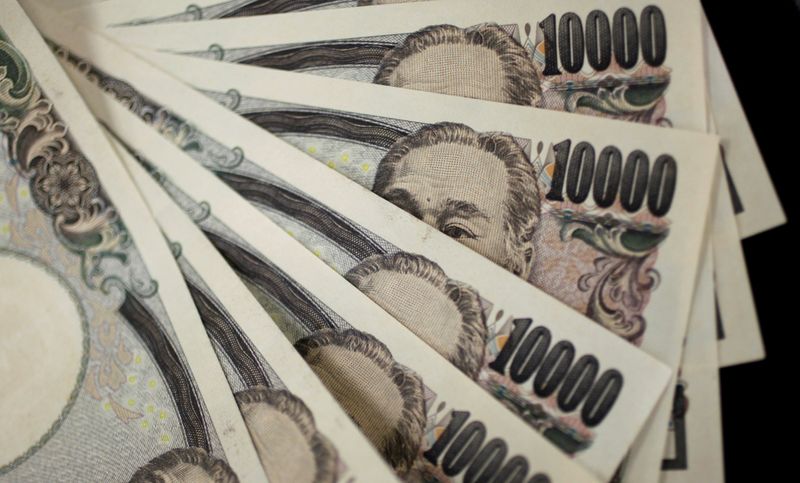LONDON (Reuters) - The Japanese yen and Swiss franc pulled back from recent highs on Tuesday as investors became less anxious about the chances of an all-out conflict between the United States and Iran.
The yen fell from a three-month high versus the dollar, although sentiment remains fragile due to continued worries about armed conflict between the U.S. and Iran.
A drone strike in Baghdad on Friday ordered by U.S. President Donald Trump killed Iranian military commander Qassem Soleimani, widely seen as Iran's second most powerful figure behind Supreme Leader Ayatollah Ali Khamenei.
The Swiss franc, another go-to currency when investors are nervous, fell from four-month highs against the euro and dropped versus the dollar.
Equity markets, which weakened heavily on Monday, rebounded in early trading.
"Since no further bad news from the Middle East followed, markets have calmed down somewhat and panic moves like in the USD or the JPY have been corrected," Commerzbank (DE:CBKG) analysts said.
The yen was last at 108.33 yen per dollar, some way from its high on Monday of 107.77 .
(GRAPHIC: U.S. dollar vs Japanese yen - https://fingfx.thomsonreuters.com/gfx/mkt/13/653/653/yen%20jan%207.png)
The Swiss franc weakened 0.2% versus the dollar to $0.9696 and stood at 1.0839 francs per euro (EURCHF=EBS), unchanged on the day.
The dollar, which fell on Monday, rose 0.2% against the euro to $1.1176 (EUR=EBS).
The U.S. currency, the world's most liquid, is often bought in times of market flux, but its performance has been mixed in recent sessions - slightly better-than-expected euro zone business survey data on Monday supported the euro.
Against a basket of currencies the dollar index firmed 0.1% to 96.772 (DXY).
"Sentiment clearly favors risk-off trades, but dollar/yen is not falling much because Japanese importers are buying," said Yukio Ishizuki, strategist at Daiwa Securities in Tokyo.
"Excluding this real demand, the dollar is weak against other currencies. This reflects the situation in the Mid-East, but we need to see what happens next."
Aside from geopolitical tensions, the focus for currencies in European hours is December euro zone flash inflation data, due at 1000 GMT.
U.S. trade balance data, factory orders, and numbers from the services sector are also due later.
Elsewhere, sterling slipped 0.2% to $1.3144 ahead of the UK parliament returning following the Christmas recess.
The onshore yuan rose to a five-month high of 6.9522 per dollar in another sign that traders are ready to put aside concerns about a more significant confrontation between Tehran and Washington.
The offshore yuan gained 0.4% to 6.9393 yuan per dollar , its highest since Dec. 13.
The U.S. and China are expected to sign a preliminary deal on Jan. 15 to de-escalate a prolonged trade war.
